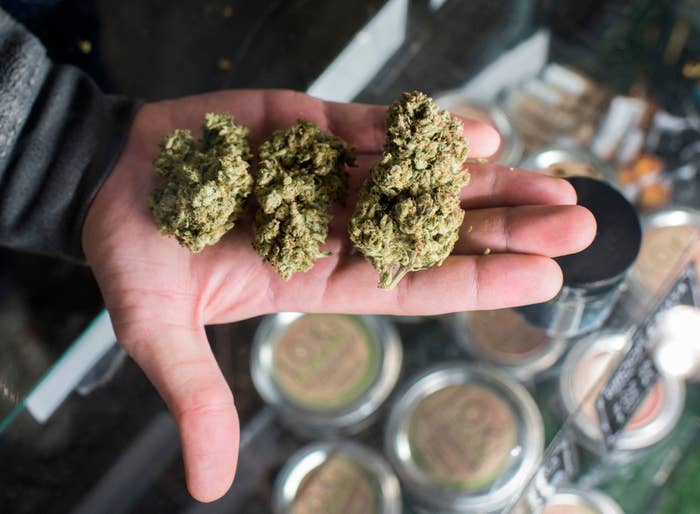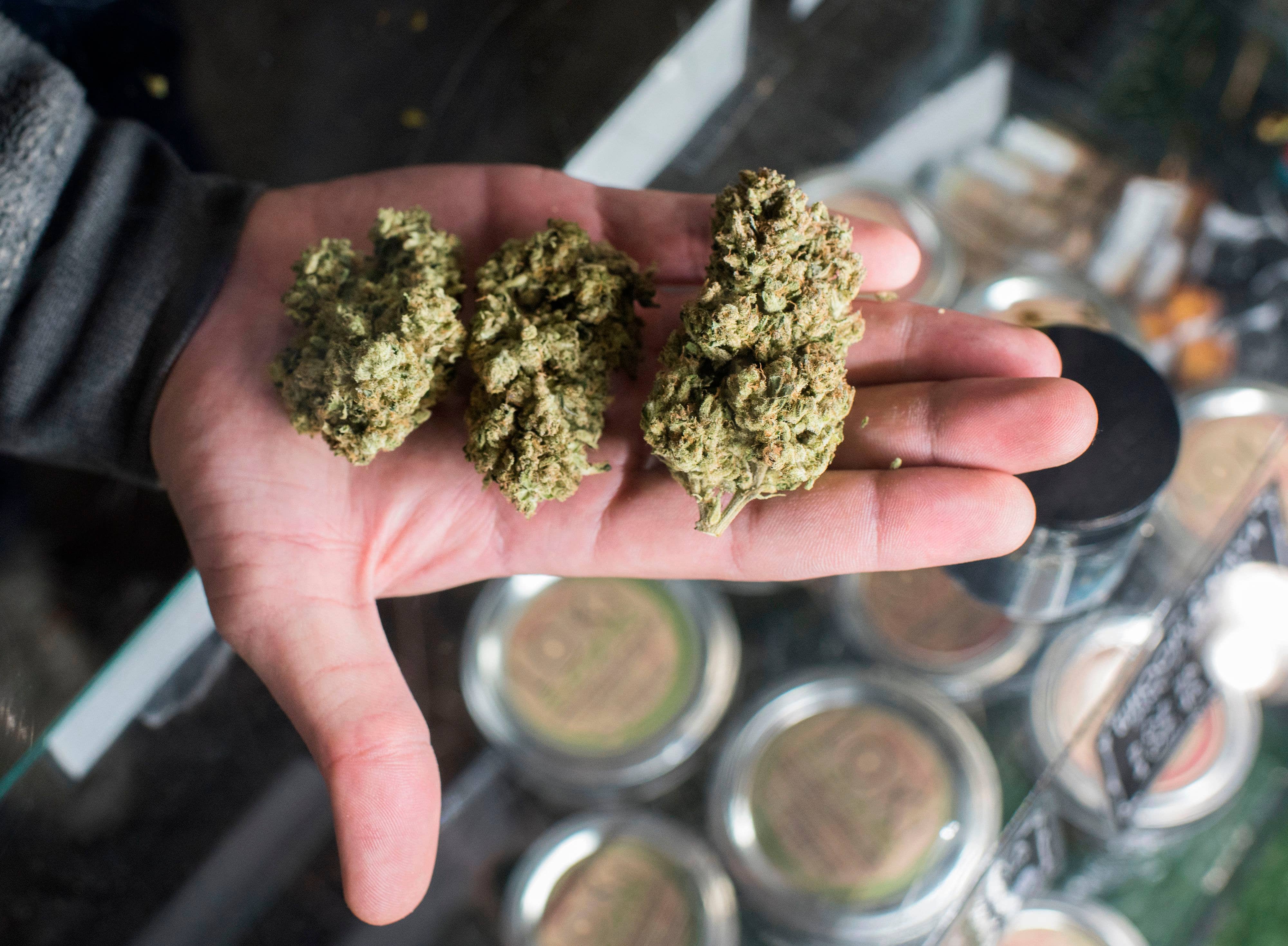
On Tuesday, Jan. 15, New York Governor Andrew Cuomo revealed his new state budget, which includes a proposal to fully legalize recreational marijuana for adults. The legalization of recreational marijuana would make New York the eleventh state to enact such policies (Washington D.C. has also legalized the substance). Recreational legalization was also proposed by New Jersey Governor Phil Murphy on the same day.
Cuomo first proposed the move, which has received support from politicians throughout New York and in the state senate, in a December speech, where he outlined his plans for the first 100 days of his third term as governor. During his State of the State address, he advocated for the creation of a new state office to regulate and carry out the changes, which include enacting a minimum age of 21 to consume marijuana; imposing a 20 percent state tax and two percent local tax on the sale of the drug from wholesalers to retailers (as well as a per-gram tax on growers); establishing separate licensing programs for marijuana growers, distributors and retailers; and allowing counties and cities to ban marijuana sales within their boundaries.
New York State is no stranger to weed: Cuomo approved the use of medical marijuana back in 2014, when a poll found that 83 percent of New Yorkers supported it. A bill intended to legalize pot was introduced by Senator Liz Krueger in 2013. This latest development is likely to be widely-supported move amongst constituents; 63 percent of the population is reportedly in favor legalizing recreational marijuana.
Cuomo’s desire for legalization likely came about as a result of Cynthia Nixon’s candidacy for governor. Nixon’s progressive platform included a push for the legalization of marijuana, while Cuomo opposed recreational marijuana as recently as 2017, calling it a “gateway drug.”
The most obvious incentives for legalizing weed are financial. Studies have shown that legal marijuana could bring a $3.1 billion market to New York State, and tax revenue for legal weed could fall between $248 million and $677 million (Cuomo’s own revenue numbers suggest somewhere in the $300 million range) in the first year. That money could be used for things like education, healthcare, and necessary fixes to New York City’s much-maligned public transportation system.
Perhaps the most important change would be a significant decrease in unnecessary incarceration, particularly for black and brown individuals. In the budget document released Jan. 15, Cuomo included the caveat that weed legalization would also seek to “reduce impacts of criminalization affecting communities of color.” He previously noted that the criminality of marijuana has “for too long targeted the African-American and minority communities.”
In 2013, during the latter years of New York’s racist stop-and-frisk policy, more people were arrested for weed (over 5,000) than guns (729), with white people making up just nine percent of those arrests. Under former Mayor Michael Bloomberg, who was blatantly anti-weed, the number of marijuana arrests were higher than the last three mayors combined. From 2002 to 2012, the New York Police Department spent one million hours searching and arresting individuals in possession of cannabis.
While putting an end to these types of arrests would certainly benefit non-white communities, these same communities would likely not reap the aforementioned economic benefits of legalization. A 2017 study conducted by Marijuana Business Daily found that 81 percent of weed business owners and founders are white, which can be attributed to the legal marijuana industry’s high cost of entry.
“As a person of color, you’re legislatively barred from participating because application fees are so high or the cost of entry into the industry is so high that you don't have the financial means to compete,” Dr. Lakisha Jenkins, founding board member of the California Cannabis Industry Association, told Complex.
Another gatekeeping tactic is the existence of a criminal record; most states have ruled that individuals with felony arrests on their record are not eligible to participate in the legal marijuana industry—even if that arrest was for marijuana possession. This reflects a national disparity in which white people are more likely to smoke weed, but minorities are more likely to be arrested for it.
To allow a portion of the population to reap the financial benefits of legal marijuana while others continue to face the harsh consequences of its illegality would be morally objectionable. Thankfully, other states (and countries) have sought to level the playing field, with methods that could potentially be mimicked by the state of New York.
San Francisco, for example, has dismissed weed-related misdemeanor convictions since 1975, and reviewed all marijuana-related felonies from that same time period. Seattle is vacating cannabis possession convictions from 1996 to 2010, because they “disproportionately impacted people of color.” Colorado, Maryland, New Hampshire, and Oregon have all made efforts to make expunging or sealing marijuana crime records easier on individuals, and Canada is already fast-tracking pardons for possession. Cuomo, in his initial proposal, has advocated for wiping convictions of marijuana possession from the records of those arrested for it.
If action is taken to halt the oppressive legal practices surrounding marijuana, its legalization could be one of the most significant changes in New York criminal justice since the decrease of stop-and-frisk. The majority of New Yorkers (and Americans) support the legalization of marijuana. So long as the process brings with it justice for those afflicted by outdated and prejudiced policies, the legalization of recreational marijuana could greatly benefit the Empire State.

